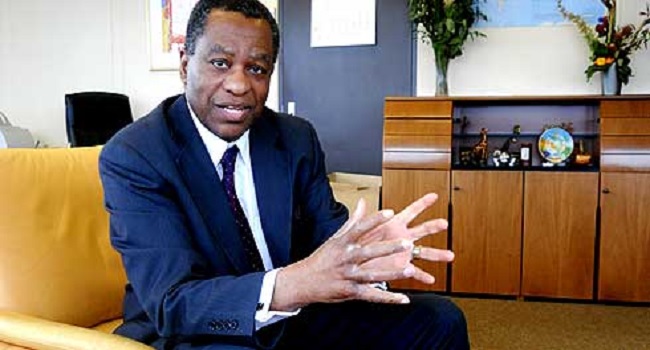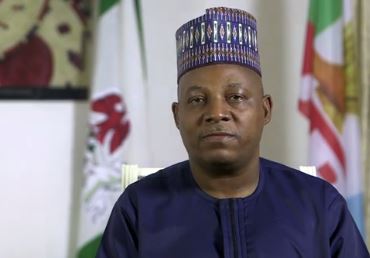By Ola Sanmi
The Nigerian military has performed the funeral oration and final interment for terrorism in the country long ago. Nigeria and the Northeast particularly have become the global epitomes of how a country and its people reshape their destinies in handling crisis of national dimension. Thanks to the gallant Nigerian troops.
Inevitably, the focus of a post-terrorism era in Nigeria is now narrowed down to two intertwined issues. Firstly, although, most Internally Displaced Persons (IDPs) camps in the Northeast have been officially closed and occupants have returned to ruined country homes to begin life afresh, but some camps are still operating. It punctuates the need for intensified efforts to have the IDPs return back to their homes in villages and communities hitherto overran by defeated insurgents.
But by far, the biggest concerns of the Federal Government of Nigeria (FGN), the Borno State Government, the United Nations, world philanthropic organizations, and the European Union (EU) among others currently is the rebuilding of the ravaged Northeast. Boko Haram Terrorists (BHTs) reduced most parts of the region into rubbles and ghost communities in the near seven year old senseless and demonic war on Nigerians. It killed thousands and left in its trail millions of internally displaced Persons (IDPs) as well as an awful magnitude of the destruction of both public and private properties.
But today, the clear action as detected by the circumstance of the defeat of terrorists by Nigerian Army is to properly resettle retuning IDPs through the re-building of damaged public infrastructure such as roads, schools, hospitals, public offices and probably residential houses. The task is quite enormous.
President Muhammedu Buhari first unveiled his reconstruction, re-building and reconciliation plan for the region, which it is working relentlessly to implement. Buhari spoke through the Vice President Yemi Osinbajo at the Harvard University’s Weatherhead Center for International Affairs which mainly targets reconstruction and peace-building initiatives.
In pursuit of this objective last year, Nigeria’s Recovery and Peace Building Assessment (RPBA) pre-financing assessment conducted in alliance with the federal and states governments alongside global partners, such as the United Nations, World Bank and the European Union hinted of the extent of damage and amount of funds required to inject life into the six states arrested by insurgency. It tentatively pegged the figure on damaged infrastructure at $9 billion.
However, the report which the stakeholders anchored on three main parameters like infrastructure and social services, peace building, stability and social cohesion, and economic recovery, disclosed that $6 billion was instantly needed for immediate stabilization and recovery of the Northeast region’s states of Adamawa, Bauchi, Borno, Gombe, Taraba and Yobe.
The gamut of involvement in re-building infrastructure in the Northeast has also seen the World Bank pledging to commit $2.1 billion to the programme. The world financial body made the pledge when it held a parley with President Buhari in Washington last year. It averred that the funds will be spent through the World Bank’s International Development Agency in the form of low-interest loans among other benefits. The EU is also seriously committed to the cause of re-building the Northeast and has pledge to spend millions of Euros.
But more pleasantly, the Nigerian Army under the Chief of Army Staff (COAS) Lt. Gen. Tukur Yusufu Buratai, pushed by humanitarian reasons has also delved into the re-building efforts, even though it is clearly outside of their responsibilities.
Buratia directed the Nigerian Army Engineers (NAE) Corps to hold its 2017 Nigerian Army Small Arms Championship (NASAC 2017), in Sambisa Forest, Borno State. Soldiers have been mobilized to site and clearing of access roads clearance and construction of range and other facilities are in progress to make the vicinities of the Sambisa forest accessible to locals. After the exercise, the roads infrastructures remain the assets of people of the Northeast.
In addition, soldiers have registered presence in the area of human resources development in the rebuilding process of the Northeast. The Army boss has announced plans of recruiting eligible terrorism Internally Displaced Persons (IDPs) into the Nigerian Army.
The Nigerian Army Headquarters said the recruitment of IDPs into the Army is part of the strategies to empower these Nigerians in critical areas of human endeavours to place them on a pedestal to become more useful to their communities as well as contribute to national development.
Within the same period, the COAS also inaugurated the newly constructed headquarters of the 331 Artillery Tactical Forward Operation Base (FOB) at Buratai, in Biu LGA of Borno state. A military formation in Biu in Buratai district stretches from the Damaturu axis and links three other state capitals in the North East namely Maiduguri, Gombe and Yola. The military barracks will certainly attract infrastructure and other amenities to the locality.
Even while in camps, soldiers organized temporary schools for IDPs. Troops of 21 Brigade, 7 Division Nigerian Army, exemplified this practical human development initiative for IDPs in Bama town, Bama LGA of Borno State, which is an integral part of the rebuilding process.
Borno state Governor Kashim Shettima is not just keen, but very restless and has demonstrated in words and actions his readiness to jumpstart the rebuilding of Borno. He is re-building schools and hospitals damaged by insurgents. He has embarked on the construction of access roads and rehabilitation of old ones damaged by insurgency bombs. These are laudable efforts, much as he is willing to embrace and appreciate those who would identify with this noble cause to emancipate humanity, like the Lagos State Government. It has donated N50 million to each of the three states of Borno, Yobe and Adamawa adversely affected by terrorism.
In spite of these concerted efforts to bring succor to the traumatized people of the Northeast, there is still glaring missing shadows in the re-building project. Again, there is indifference on the part of politicians and elites from the Northeast in mobilizing themselves for this task. They are probably more interested in maintaining the IDPs in camps and the relics of destructions in the Northeast. They are angry at efforts to rehabilitate the people and empower them economically. They are happier to see a socially dislocated society, whose inhabitants lick their wounds of penury and continue grovel before them for succour.
Each of the six states in the Northeast has elected representatives at all levels and political appointees, who would have also floated a Special Fund for the re-building and rehabilitation of IDPs of the Northeast. They would have publicly launched the fund and invited their friends all over the world to assist them rehabilitate and give a new lease of life to their dehumanized people.
But none of them has thought of this initiative. Rather, they are operating cleverly under the protective shadows of people or organizations outside of the enclave who have shown commitment to the cause, a smart way of covering their nakedness. What are parliamentarians in the areas for example, doing with jumbo constituency allowances? Why are these politicians so indifferent to restoring the dignity of the people?
Could it be that most of those still holding elective offices would not have secured a second term had Boko Haram not ravaged the Northeast? So, are they afraid that restoring the self-worth and economic status of IDPs would pave way for an ideal election that would unseat them and that’s why IDPs must remain in camps to easily buy their votes?
Likewise, where are the faces of elites and professionals of the Northeast in the re-building and reconstruction of their despoiled home land? Why have they gone into oblivion, instead of boldly stepping out to pair with others in the final extrication of their people from the bondage of depravity and indignity? These are the missing voices in the Northeast rebuilding process and they must not be muted forever.
Whatever is their thinking, they must not forget that there is nowhere in the world outsiders are expected to cry more than the bereaved. Re-building and reconstructing the devastated Northeast is more the problem of the indigenes of the area than anyone else. If Nigerian Army which has no civil obligation or any connection with the re-building or reconstruction efforts in the Northeast have devoted time and energy towards this humanitarian project, indigenes of the Northeast who are still aloof should think twice. It’s dangerous to play politics with people’s lives or welfare.
Ola, a forensic psychologist writes from Kaduna State.


